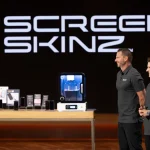
Highlights
- The Shark Tank show had a fair share of excellent and worst pitches.
- About 40% of Shark Tank pitches have received deals from different Sharks on the show.
- From Amber to RoloDoc, scroll through to know in depth about the worst Shark Tank pitches of all time.
The Shark Tank show has given wings to the entrepreneurial dream of countless people. It has seen brilliant business ideas turn into multi-million-dollar empires.
Such pitches have further inspired others to start hustling towards their business aspirations. But the show also featured some bizarre products that left the Sharks baffled, annoyed, or laughing in disbelief.
If you look back at the episodes of previous seasons, the worst pitches have mainly shown the unpreparedness of entrepreneurs. Sometimes they overestimate the valuation of their business. In other cases, they fail to share essential details (like product features), which makes the investors lose interest.
There are some mistakes that the Shark Tank contestants made that must be avoided. From overpriced gadgets to bizarre inventions that made zero sense, here’s a look at the worst Shark Tank pitches of all time, plus what happened after the cameras stopped rolling.
1. Amber
Bill Shuey and Kyle Byrd came up in full enthusiasm, pitching Amber, a public phone charging station on Shark Tank. Presenting a backdrop of the struggle of charging phones in public places, Bill and Kyle elaborated on the many features and benefits of Amber.
The duo stated that the product would be free of cost for the users. It included seven charging compartments harnessed with biometric and fingerprint scanning technology.
They believed that Amber would be a helpful option for the end users and the venue owners who would be availing of it. This was because people would stay longer, resulting in an enhanced customer experience and increased earnings.
The entrepreneur duo envisioned putting Amber in public places like bars, gyms, movie theaters, and restaurants. Their proposed investment was $200K for 25% equity. But to their dismay, their excitement soon turned into disappointment.
How did the Sharks react?
Mark Cuban asked if the product was shipping; Bill replied that they had not made any revenue yet. Robert was the next to raise a question. He inquired about the costing structure from the point of view of a bar owner.
The entrepreneurs revealed that they would charge either $2K per unit or $150 each month on a lease basis.
Lori interrupted them, saying the product was more of a “convenience” and not a “necessity.” Robert felt the entire product wasn’t secure enough. However, the real shocker for the Sharks came when the entrepreneurs disclosed that it took them $1000 to prepare each unit.
Lori and Mark immediately stepped out of the deal. Kevin claimed that this was the “worst idea” ever. Daymond and Robert were out as well.
After Bill and Kyle left, the Sharks said this was one of the worst and shortest pitches ever.
2. Track Days
James LaVitola and Brian Pitt went to the Sharks, pitching for their ambitious movie, which was focused on motorcycle racing.
They reflected on the business idea in detail, stating that Track Days was a collaboration between James (a former stuntman), Brian (a producer), and Cliff Dorfman (a writer).
James revealed that the business’s motivation emerged because motorcycle racing ranks second on the list of most-watched sports in the country. Still, there were no movies that explored this concept. So, they felt this would be a perfect business plan.
The entrepreneurs stated that they were eyeing to raise $2 million on Kickstarter, which seemed difficult to achieve then. This is why they went to try their luck on Shark Tank.
How did the Sharks react?
James and Brian sought $5 million for 34% equity for their motorcycle racing business. Mark stepped out of the deal without hearing any further.
The duo still went ahead, offered popcorn and candies to the Sharks, and played the movie’s trailer.
Daymond said he had invested in a movie earlier, but it didn’t yield well, so he was out. Kevin wasn’t impressed either, called it a “bad idea,” and opted out of investing. Barbara and Robert followed them and refrained from proposing any deal.
Track Days didn’t find a positive response from other investors after their appearance on the show.
3. RoloDoc
RoloDoc was the most unprepared pitch to have appeared on the show. This social media app was specially developed for physicians.
Brought to investors by doctors Richard and Albert Amini, the app aimed to create a comprehensive directory of physicians. This would enable patients to interact with them seamlessly.
They claimed that the app would emerge as LinkedIn for patients and doctors. Leveraging features similar to social media, patients could pick their preferred doctors by browsing through the directory.
Next, they could share their medical records and consult with the chosen doctor one-on-one.
How did the Sharks react?
The Sharks appeared confused ever since the beginning of the pitch. This was because the entrepreneurs couldn’t elaborate on how social media could be used and how doctors would agree to participate.
They even struggled to explain how the confidentiality of every stakeholder would be maintained. Additionally, there was no means to verify who could be a real or fake doctor.
As a result, Mark went up to the entrepreneurs and told them that it was the “worst presentation ever.” The other Sharks followed, citing the same reason. So, Albert and Richard went out without a deal.
RoloDoc never existed after the awful experience on Shark Tank, and the doctors returned to their medical profession.
4. Throx
Edwin Heaven, a quirky entrepreneur with a flair for the unusual, entered the Tank with a product. The product is claimed to solve a universal problem, i.e., lost socks.
Edwin’s invention, Throx, was marketed as the world’s first three-sock pack. Since people often lose a sock in the laundry, buying socks in threes would guarantee a backup.
The founder came in asking for $50,000 in exchange for 25% equity. Edwin pitched Throx with humor, presenting it as both a practical product and a fun twist on an age-old annoyance.
How did the Sharks react?
At first, the Sharks chuckled at the novelty of the idea. Kevin O’Leary remarked that while it was clever, he couldn’t see how it could be built into a serious, scalable business.
Barbara Corcoran questioned whether people would actually pay extra money for what amounted to a “spare sock.”
Daymond John, who has a strong background in fashion, noted that sock companies could easily replicate the idea, meaning there was no real competitive advantage.
Mark Cuban said it felt more like a gag gift than a sustainable brand.
None of the Sharks made an offer. Throx continued to exist as a small online novelty business, but it never gained traction in the broader retail market.
5. Wake N Bacon
Matty Sallin entered the Tank with a pitch that immediately caught the Sharks’ attention. Wake N Bacon is an alarm clock that doubles as a bacon cooker.
Instead of waking up to a beeping alarm, users could wake up to the smell of freshly cooked bacon.
Sallin presented a prototype that looked like a standard alarm clock but had a built-in cooking chamber.
He explained that the clock would turn on 10 minutes before the alarm time, slowly cooking a strip of bacon to perfection just as the user woke up.
How did the Sharks react?
The Sharks were entertained but skeptical. Lori Greiner raised immediate concerns about food safety, saying that leaving raw bacon out overnight could be dangerous and that the device could potentially pose a fire hazard.
Robert Herjavec questioned whether anyone would actually trust such a device enough to use it regularly.
Kevin O’Leary, in his usual blunt fashion, called it a fun idea that belonged more in a college dorm prank video than in a serious business pitch.
Daymond John and Mark Cuban both passed quickly, with Mark noting that the liability issues alone made it a non-starter.
Wake N Bacon didn’t receive any offers. While the pitch went viral online for its humor and quirkiness, the product was never mass-produced or sold commercially.
Lessons from Worst Shark Tank Pitches
There is no denying that Shark Tank has made the business vision of countless entrepreneurs come alive. The above examples underscore the importance of basic groundwork before entrepreneurs make their way into the show.
The ideal Shark Tank pitches are the ones that are thoroughly researched and do not involve superficial claims and expectations only. The above pitch examples must be taken as a lesson for the aspiring entrepreneur thinking of participating in the show.
The worst Shark Tank pitches remind us that passion isn’t enough to succeed. Remember that clarity, research, and realistic numbers matter and the investors back businesses, not just ideas.
References
- Brian Pitt, IMDb
- James LaVitola, IMDb




















